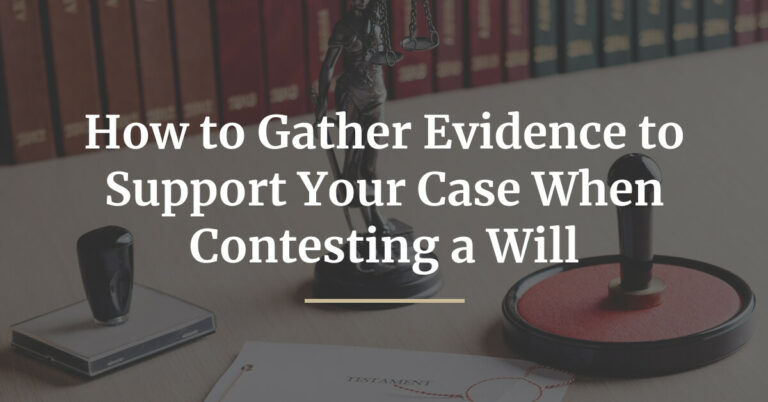
How to Gather Evidence Needed to Contest a Will
A person contesting or defending a will may obtain evidence from various sources and in various forms. The overarching objective when gathering evidence is to identify, obtain and/or collate evidence that advances your case. An experienced wills and estate lawyer will be able to advise you on what is best for you and your case.
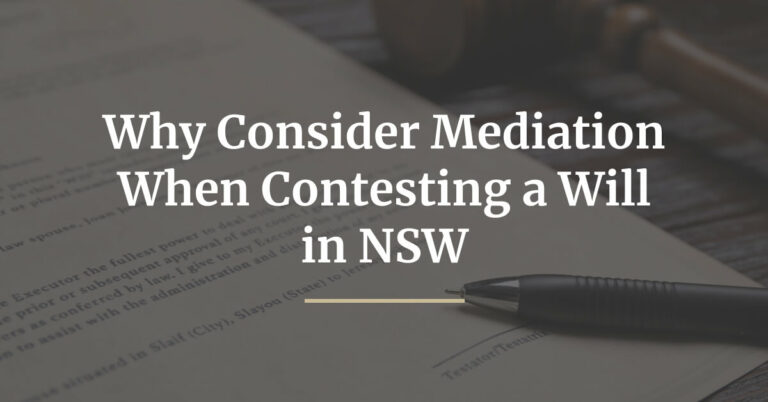
What is Mediation in Family Law
What is Mediation? Mediation is an alternative dispute resolution process whereby the parties meet with an independent, impartial and neutral mediator who assists the parties to reach an agreement. Mediation can take different forms including judicial settlement conferences, court-annexed mediation or private mediation. The success of mediation will depend on each party’s willingness and ability
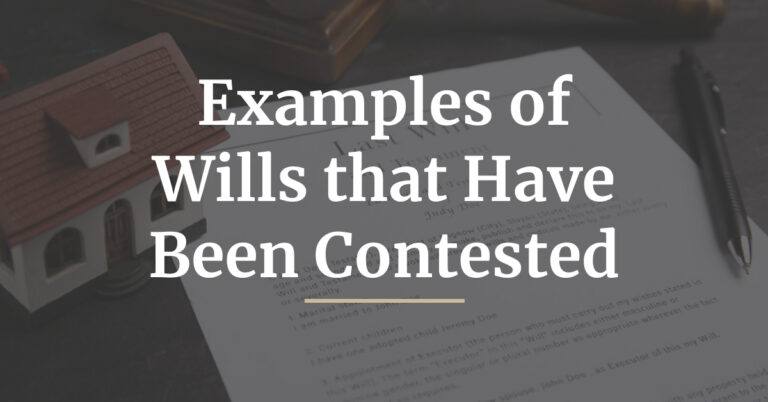
Examples of Wills that Have Been Contested
In NSW, an ‘eligible person’ may contest a will by making an application under section 59 of the Succession Act 2006 (NSW) for provision (or further provision) from a deceased estate if the will of a deceased person did not provide them with adequate provision for their proper maintenance, education and advancement in life. Spouse

A Guide to Challenging a Will in NSW
On What Grounds Can You Challenge a Will in NSW The facts and circumstances of a case will determine whether a will can be challenged and on what grounds. Examples of where a person may be able to challenge a will include where the will has not been executed in accordance with the formal requirements

What to Do if You’ve Been Left Out of a Will in NSW
Finding out that you have been left out of a will can be an emotional – and in the case of a parent or close family member – a potentially devastating realisation. You may know why the will-maker chose to exclude you as a beneficiary, or it may come as a complete surprise. In any
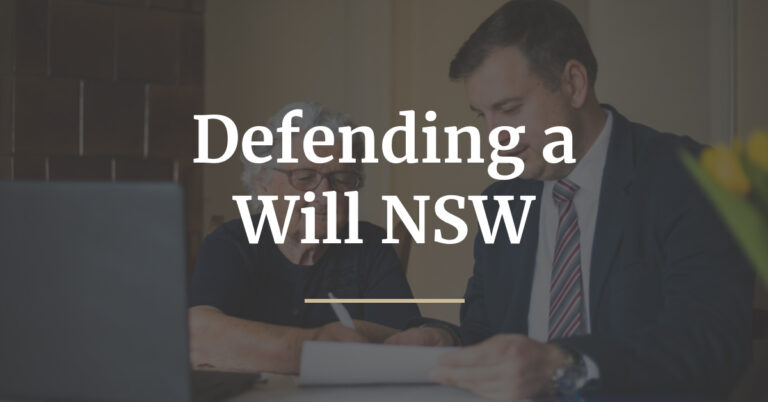
Defending a Contested Will NSW
It is the executor’s role to defend a will against a claim, regardless of whether the claim is well founded or frivolous. A person may challenge a will on grounds including undue influence, suspicious circumstances, or a lack of testamentary capacity, or a person may contest a will by making a family provision claim for
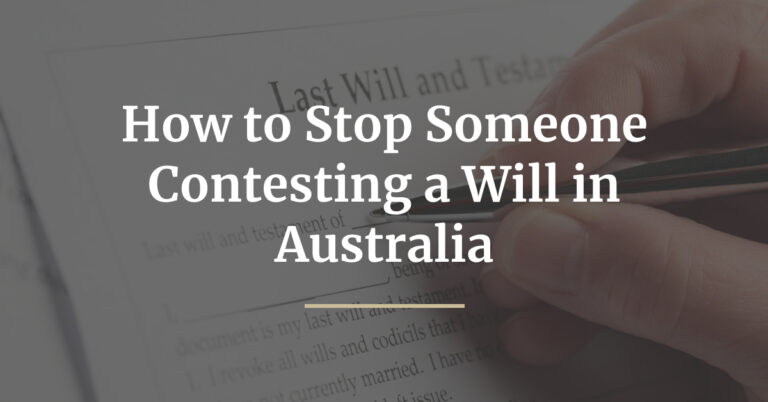
How to Stop Someone Contesting a Will in Australia
In NSW, a person may contest a will by bringing a claim against a deceased estate for provision or further provision from the estate. This is known as a ‘family provision claim.’ Family provision claims may be well founded and have good prospects of success, or may be frivolous with no prospects of success brought
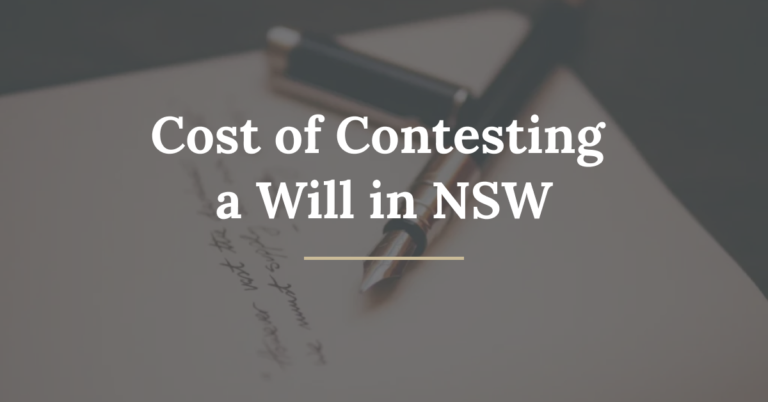
Cost of Contesting a Will in NSW
The cost of contesting a will depends on several factors, including your legal representative’s fee schedule and fee structure, the size and complexity of the estate, and the timing of the resolution. The fees that a person may pay will depend on their legal representative’s fee schedule and fee structure which are set out in
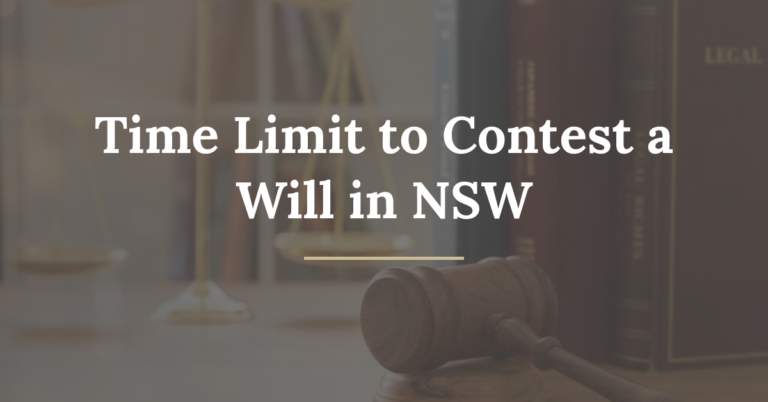
Time Limit to Contest a Will in NSW
If you want to contest a will in NSW, there are time restrictions that you must adhere to. In NSW, an application for a family provision order must be made not later than 12 months after the date of the death of the deceased person, unless the court otherwise orders on sufficient cause being shown
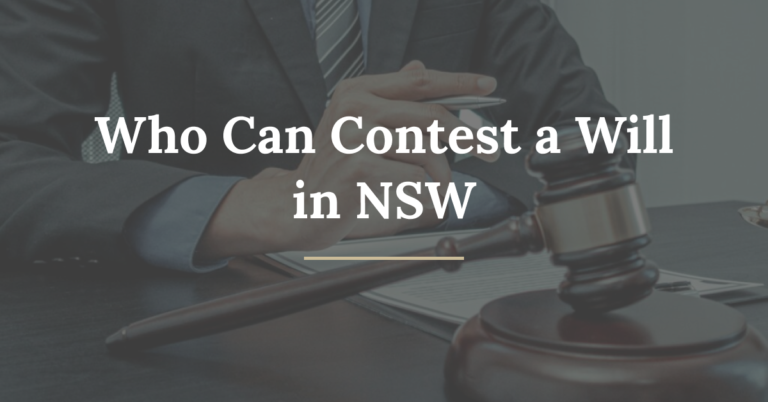
Who Can Contest a Will in NSW
Only an ‘eligible person’ can contest a will in NSW. ‘Eligible person’ is defined in section 57 of the Succession Act 2006 (NSW) and includes a spouse, de facto spouse, child, former spouse, a wholly or partly dependant grandchild or member of the deceased’s household, or those with whom the deceased person was living in
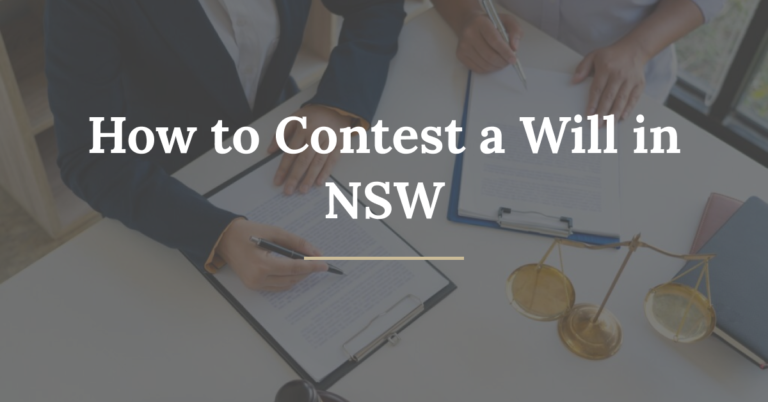
How to Contest a Will in NSW
In NSW, a person can leave their assets to anyone they choose when they die, in other words, the person has “testamentary freedom.” In some circumstances, however, the law can interfere with the deceased’s testamentary freedom and effectively rewrite the terms of the deceased’s will by altering the distribution of the deceased’s estate. This is
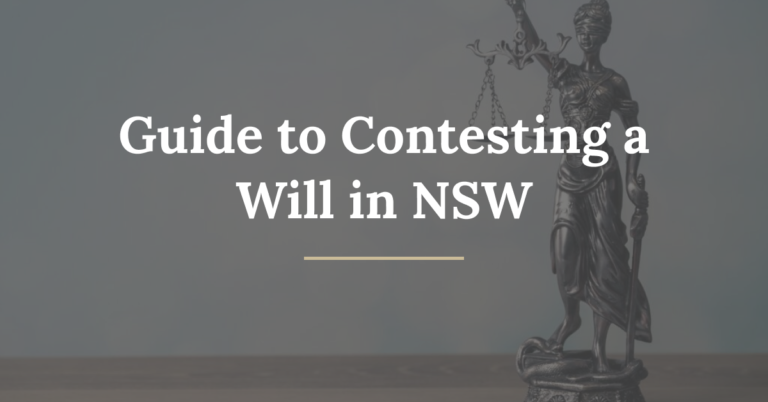
Guide to Contest a Will in NSW
Guide to Contesting a Will NSW Discover your rights and options in contesting a will in NSW with our expert guide, detailing the legal provisions and processes for potentially altering a deceased’s will through a family provision order. Need help contesting a will? In NSW, a person can leave their assets to anyone they choose

Why Have a Valid & Up-to-date Will?
Taking the time upfront to prepare an effective, legally binding will helps ensure your hard-earned assets are distributed or taken care of in a way that you like. Carefully considered estate planning saves families stress and money following your passing—an already undoubtedly difficult time for them. Rather than remain uncertain that the will you have
